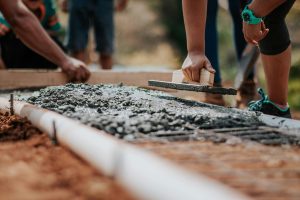Leadership isn’t defined by just having the title. It is also characterized by your actions and how you conduct yourself in that leadership position. Whether you’re working for a small student organization or stepping into a bigger, more professional role. Your actions and the way you interact and treat others can set the tone for the relationship with your coworkers or employees. Today, we’re going over 10 habits that can build a base for strong leadership and can leave lasting impressions on your relationships.
Keep Your Promises
Trust is one of the most valuable things to maintain in a relationship; trust is built when your words consistently match your actions. Being able to follow through on promises you make, even small ones, shows that other people can rely on you.
Listen to the people around you
Truly listening to people isn’t just waiting for them to stop talking; it’s trying to understand what they’re talking about. When you truly listen to someone and focus on what they’re talking about, it gives them the feeling that you value and respect what they’re saying. That kind of respect strengthens the trust and collaboration within your relationships.
Own Your Mistakes
Nobody is immune to making mistakes, but most people don’t admit the mistakes that they make. Taking responsibility when something goes wrong creates credibility for yourself. It shows others that you take accountability and can learn and grow from your mistakes, which is something people admire in a leader.
Celebrate the small wins
Progress comes in different steps, big and small. Recognizing all achievements, even the small ones, boosts morale and keeps momentum moving forward. Acknowledging people’s accomplishments not only motivates but also reinforces that everyone’s effort matters.
Ask Before Advising
It’s normal to jump straight to problem-solving whenever someone asks you a question, but sometimes people need more than just a solution. However, asking thoughtful and meaningful questions before offering a solution shows respect and encourages others to think through their own ideas. This is an approach that, instead of overshadowing, actually empowers them.
Stay Calm in Chaos
When issues arise, your response sets the tone for everyone else around you. Maintaining a cool composure under pressure provides a sense of stability and can help others stay focused. Calm leadership can help reassure others that those obstacles can be overcome.
Give Credit Loudly
Giving someone credit in private is meaningful to them, but celebrating their achievements in public goes further. Celebrating others’ accomplishments and efforts out loud can energize performance, encourage appreciation, and even build loyalty.
Protect people’s time
Time is a very valuable resource. Protecting people’s priorities, avoiding distractions, and respecting the boundaries they set can demonstrate that you value their time. Leaders who are able to respect people’s time tend to foster healthier and more productive teams.
Lead by Example
People recognize actions, not words. They notice what you do much more than what you say, so set the bar high through your own behavior. The best leaders model the values they want to see in others.
Show equal respect
Leadership is about dignity and fairness. Good leaders tend to treat everyone with the same respect, regardless of what role or title they have. Treating everyone with equal respect can unify a group and build a strong foundation of trust and respect.
Being a leader isn’t about being perfect; it’s really about being consistent. If you can implement these habits into your day, then you can not only earn the trust of others around you, but you’ll also foster an environment where people will feel valued, motivated, and respected. Start practicing these skills now, and you’ll be prepared to lead with confidence in whatever position you choose.

Ken Hammontree
Ken Hammontree is a year-long VISTA + SAU Fellow working in the SAU Career Services Office. He graduated in Fall 2024 with a Bachelor of Science in Forensic Chemistry and plans to pursue a Master of Science in Forensic Chemistry in the future.









